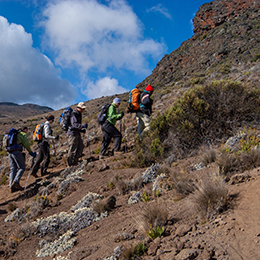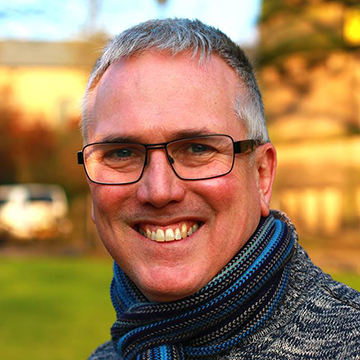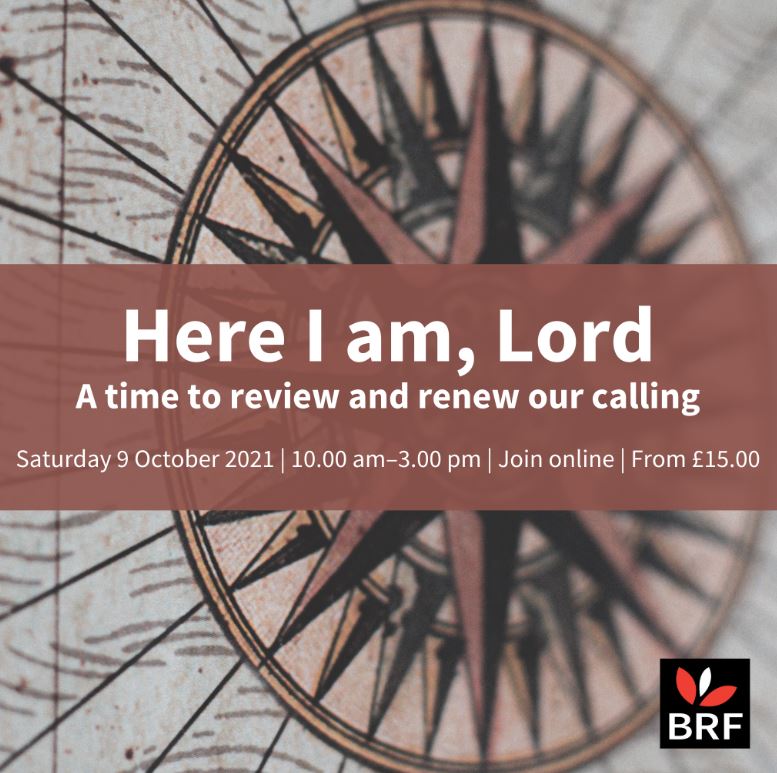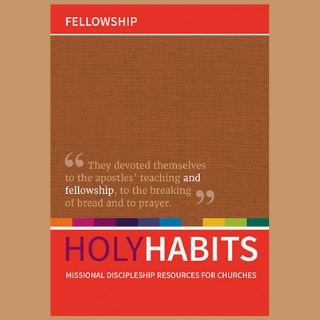For many of us, the global pandemic has taken its toll on our sense of vocation and fulfilment. Andrew Roberts, pioneer of Holy Habits, considers how in navigating the ‘new normal’ we find an opportunity to renew our sense of calling: gradually, by returning to our Christian roots, and in community…
26 September 2021
The restoration of vocation
The last two years have been extraordinary. Among the maelstrom of experiences and emotions there have been those who have rejoiced in new or rediscovered opportunities and callings.
Rediscovering humanity’s first calling
In the BBC’s preview of the Chelsea Flower Show, we were told that three million people have taken up gardening since the first lockdown in March 2019. That’s three million people rediscovering humanity’s first calling to tend God’s creation (Genesis 1:29). Let’s hope that many more join them. Another noticeable theme was the development of gardening techniques that help to combat climate destabilisation.
We hear much talk these days of a ‘new normal’. Part of me wonders whether we do need a new normal, or instead the restoration of an ancient normal that honours both creation and the creator, and sees the natural world as a gift to be treasured and cared for – not something to be relentlessly exploited for selfish gratification.
Losing the joy of a calling
Alongside the joys of new and rediscovered vocations, there have sadly been many stories of those who have struggled profoundly and experienced deep loss, including the loss of the sense of vocation or a loss of joy in the calling they previously loved.
Millionaire footballers are not always the subject of much public sympathy, but I was moved to read a piece by the Manchester United footballer Phil Jones. He was badly injured shortly before the world closed down and had to spend 18 months going through painful rehabilitation, away from his teammates, while also coping with the challenges of home-schooling and all the other difficulties that successive lockdowns brought. Although he didn’t use the language of ‘vocation’ in his piece, it seemed to me that, at heart, his biggest struggle was with the loss of joy in what he was gifted to do.
‘His biggest struggle was the loss of joy in what he was gifted to do.’
Of course, he has not been the only one to experience that. Early on in the pandemic, I was deeply saddened to hear a church minister friend, in a place of exhaustion, having conducted yet another Covid-related funeral, say, ’This is not what I signed up for’. Now of course they knew that, in a way, that was precisely what they had signed up for. But the relentless waves of grief, with far fewer of the normal compensating joys of ministry, made their lament perfectly understandable.
So, what can we do when our sense of vocation dims and that which once brought us joy seems just to be a slog?
One step at a time
Sometimes we may need to just keep going. Rachel, a friend of mine, once undertook the challenge of climbing Mount Kilimanjaro, raising funds for the charity Compassion. Like many others she found it very tough at times. When she and her companions were on the point of giving up, the local guides would say in Swahili, ‘Polepole,’ meaning ‘Slowly, slowly.’ They were encouraging the climbers to keep going – one step at a time.

Sometimes that’s what life, discipleship and mission are all about – keeping going, one step at a time. There’s something in this about carrying our cross (Luke 9:23).
At other times we may need to take some time out and consciously seek the renewal of rest, or a retreat. Jesus made this a regular practice for himself and encouraged his disciples to do so too. Maybe as you read this today, you need to hear him saying to you, ‘Come away and rest a while’ – words that we find in Mark (6:34), the most frenetic of the gospels.
Restoring vocation through ancient practices
Then may I offer the Holy Habits model of discipleship as one that can be formative and restorative when it comes to vocation. As many reading this will know, Holy Habits has developed from studies of the practices of the first post-Pentecost Christian community, as described by Luke in Acts 2:42-47. In verse 42 Luke says ‘They devoted themselves to the apostles’ teaching and fellowship, the breaking of bread and prayers.’ Teaching, fellowship, sacramental encounter and prayer have long been ways and contexts in which followers of Jesus have discerned and sustained their vocation.
Sometimes, as in the immediate aftermath of Pentecost when the sense of the Spirit is palpably powerful and there is energy and positivity all around, these habits can seem to come easily and be full of creativity and excitement. In the tough times, it can be a case of polepole: slowly and deliberately keeping on keeping on with these precious practices. We might feel like giving up, but the breath of the Spirit, perhaps now just a whisper, says, ‘Keep going.’
‘The breath of the Spirit says, “Keep going.”‘
Communities that foster vocation
In their letter to a weary and worried community the writer of the letter of the Hebrews says, ‘Don’t neglect to meet together, as is the habit of some, but encourage one another, and all the more as you see the Day approaching’ (Hebrews 10:25). One of the really interesting things to notice during various times of lockdown and restrictions was a significant increase in demand for the Holy Habits resources that explore the habit of fellowship. Deprived of community, people became all the hungrier for it.
As we seek to form a new normal, we will do well to learn afresh from those who formed the first Christian communities – communities that Luke notes enjoyed ‘the goodwill of all the people’ (Acts 2:47). Communities that honoured God, were known for being glad and generous and that birthed and resourced vocations that shaped a new normal, transforming a weary and fearful world.


Andrew Roberts is a husband, father, minister, writer and speaker. He is the author of the book Holy Habits (Malcolm Down Publishing, 2016) and co-editor of the BRF Holy Habits resource booklets. He is also one of the speakers at our online one-day conference ‘Here I am, Lord’. Join us on Saturday, 9 October, if you’re interested in exploring your own sense of God’s calling.

About Holy Habits
Andrew is the pioneer of Holy Habits, which allows churches of all sizes and denominations to apply a flexible, whole-church, discipleship approach to existing activities.
